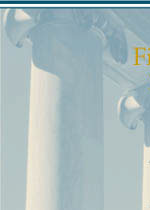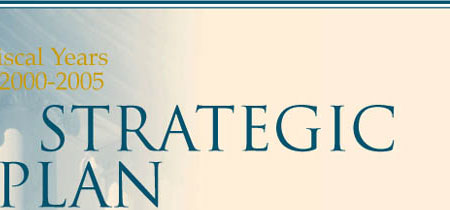 |
|
A MESSAGE FROM THE
ATTORNEY GENERAL
I have been honored to work with the President, the
Congress, the federal law enforcement community, and our state, tribal,
local and international counterparts, to improve our nation's justice system.
I am proud of what we have accomplished together.
The Department of Justice Strategic Plan for
fiscal years 2000-2005 builds on these accomplishments. It
emphasizes building partnerships, strengthening local communities,
and taking a practical, down-to-earth approach to solving problems.
These are approaches that have been shown to work.
However, the plan also recognizes that we have much more
to do-and new challenges to confront. I want to highlight several
of these challenges:
Serious crime is down for eight years in a row.
But it is still too high, and there is still too much violence. Children
in the United States under 15 years of age are nearly 12 times more likely
to die from a gunshot wound than children in the 25 other wealthiest industrialized
nations combined. Violence in the home, primarily targeted against women,
remains all too prevalent. And American Indians are the victims of violent
crime at more than twice the rate of all U.S. residents. Clearly, we must
continue to work to end the culture of violence in this country. We must
take a comprehensive approach to violence reduction- through a strategic
combination of enforcement, prevention and intervention. We must keep guns out
of the wrong hands and punish criminals-including gun criminals-swiftly,
firmly and effectively. Advances in technology and the explosive growth of the
Internet have changed the world forever. They have brought untold benefits.
But they have also created new threats, including the threat of cyberterror-ism.
To preserve the potential of the technology revolution and to protect privacy
and thwart criminal activity, we need to work together, at all levels of
government and among both the public and private sectors, to share information,
expertise, training, and equipment-and to catch and sanction offenders. Aided by the new technology, crime has increasingly
become international. Terrorism, smuggling, money laundering, and fraud
are examples of the types of criminal activity that now take place in a
global arena where perpetrators may be geographically distant from the
scenes of their crimes and where traditional territorial borders are more
and more irrelevant. To meet this challenge, the United States must take
the lead in building a global network of trusted independent nation-states
willing and able to provide justice at home and cooperate internationally.
In recent years, the United States has imprisoned more
and more people for longer and longer terms. Now, many of these offenders
are returning to their communities, often with little or no supervision or
support. This is one of the most pressing challenges we will face as a
nation in the next few years. To meet it, we must provide a network of
support, supervision and accountability that will maximize the
potential for successful reintegration into the community and minimize
the risk to society of possible fur-ther criminal behavior. If we do,
the futures of these men and women will be brighter, our communities will
be safer, and this nation will be stronger. America is an increasingly diverse nation, populated
by people of many races, cultures and ethnic back-grounds. Promoting mutual
understanding and tolerance, ensuring equal protections under the law,
and strengthening the trust of all our citizens in the fundamental fairness
and integrity of our justice institutions, are perhaps our greatest challenges.
No task is more important than continuing to expunge the vestiges of discrimination
and group hatred that tarnish the American dream. They strike at the core
of our democracy.
As a nation, we are fortunate to face these challenges from
a position of strength. Our system of justice rests on a rock-solid foundation.
And we have made great strides in protecting and building on that foundation.
But we cannot become complacent. Rather, we must seize the opportunity to
capitalize on our strength. Boldly, honestly and wisely, we must seek to
secure the promise of this new millennium.
In closing, I want to express my admiration and gratitude to
the men and women of the U. S. Department of Justice. Whether arguing a
legal point in the courtroom, patrolling a remote border area, or investigating
a serious crime, they do their jobs with skill, dedication and integrity.
It has been an honor for me to work alongside them.
Janet Reno
|





